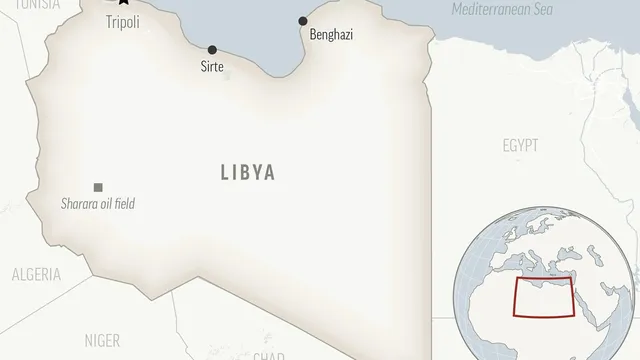
Libya's parliament appoints Belqasem as central bank governor
2024-09-30 14:23- Naji Mohamed Issa Belqasem has been appointed as the new central bank governor by Libya's eastern parliament.
- The decision follows the dismissal of former governor Sadiq al-Kabir and is part of a U.N.-facilitated agreement.
- This appointment highlights the ongoing political struggles in Libya and the need for unified governance.
Express your sentiment!
Insights
In Libya, the eastern parliament has appointed Naji Mohamed Issa Belqasem as the new central bank governor following the dismissal of Sadiq al-Kabir by the presidential council in Tripoli. This decision was made on a Monday, with all 108 lawmakers voting in favor of Belqasem, who previously held the position of director of banking and monetary control at the central bank. Alongside him, Mari Muftah Rahil Barrasi was appointed as his deputy, and they are expected to establish a new board of directors within ten days. The appointment is part of a U.N.-facilitated agreement aimed at resolving leadership disputes within Libya's financial institutions. The presidential council had previously appointed Mohamed Abdul Salam al-Shukri as a replacement for al-Kabir, a move that was contested by the eastern parliament and the Supreme Council of State, which argued that such decisions should be made collaboratively. Al-Kabir had been in office since October 2011, during a tumultuous period following the overthrow of Moammar Gadhafi. His tenure was marked by criticism from various political factions regarding the management of Libya's oil revenues, a critical issue in the country’s ongoing political strife. The recent developments highlight the ongoing power struggle between the eastern parliament and the Tripoli-based government led by Prime Minister Abdul Hamid Dbeibah. This appointment reflects the complexities of Libya's political landscape, where competing authorities vie for control over key institutions, and underscores the challenges in achieving a unified governance structure in the country.
Contexts
In a significant move aimed at stabilizing Libya's fractured financial institutions, the Tripoli-based Presidential Council has dismissed Sadiq al-Kabir from his role as Central Bank governor, appointing Mohamed Abdul Salam al-Shukri as his successor. This decision, part of a broader United Nations-facilitated agreement, seeks to address the ongoing disputes between Libya's rival political factions, namely the Government of National Unity (GNU) and the eastern-based administration led by Parliament Speaker Aguila Saleh. Al-Kabir, who had held the position since shortly after the fall of Moammar Gadhafi in 2011, faced mounting criticism for his management of the country's oil revenues, a contentious issue that has long fueled conflict in the oil-rich nation. Libya's political landscape remains deeply divided, with the GNU based in Tripoli and the eastern administration supported by the Libyan National Army (LNA). The Central Bank has been a focal point of contention, particularly regarding the equitable distribution of oil wealth, which constitutes nearly all of Libya's export revenues. Critics from both sides accused al-Kabir of favoring the Tripoli government in his financial allocations, exacerbating tensions in an already volatile environment. The appointment of al-Shukri is seen as a crucial step towards unifying Libya's financial system and restoring confidence in its banking sector, which has been severely weakened by years of instability and economic crises. The new governor faces the daunting task of addressing inflation, liquidity shortages, and the impact of global disruptions, including the COVID-19 pandemic and the war in Ukraine. As Libya continues to grapple with its political divisions, the Central Bank's reunification symbolizes a potential path toward reconciliation and economic recovery. The international community, particularly the UN, emphasizes the importance of economic reform as a cornerstone of Libya's peace process, underscoring that the stability of its financial institutions is vital for the country's future development.